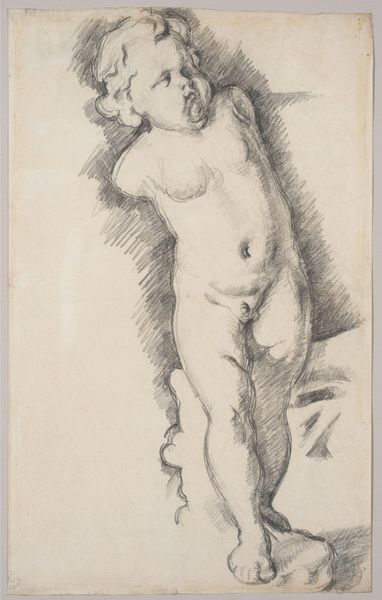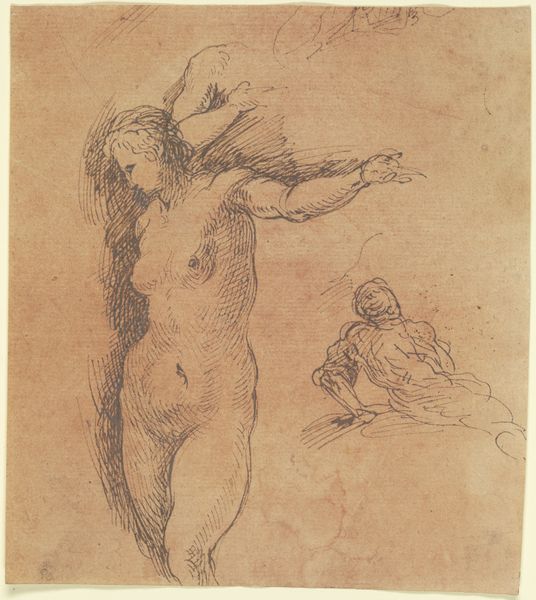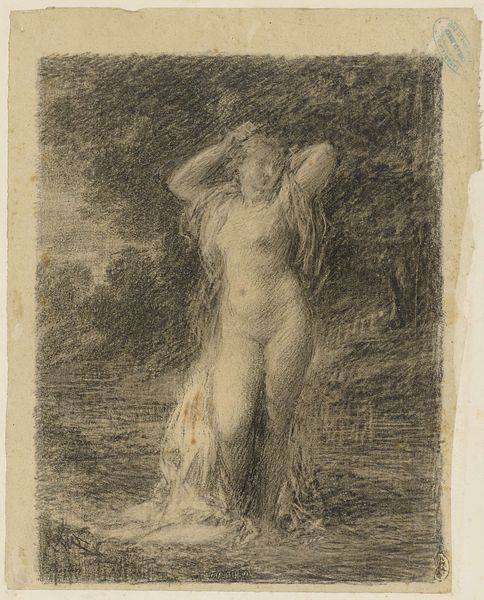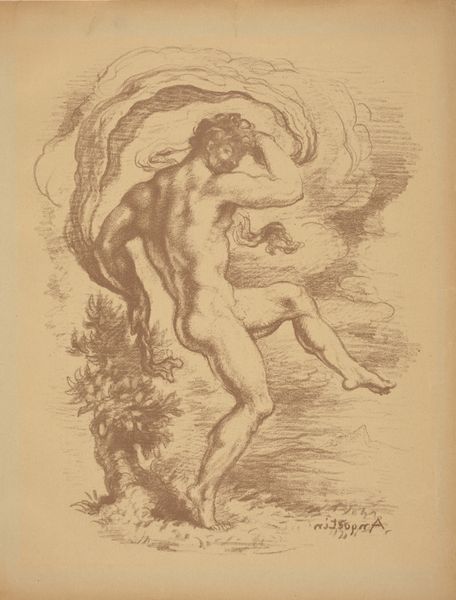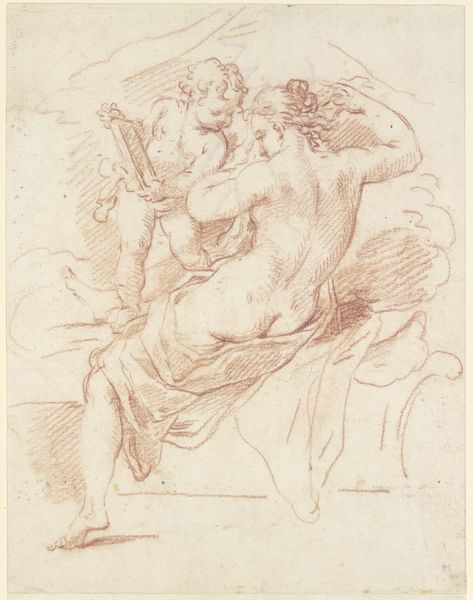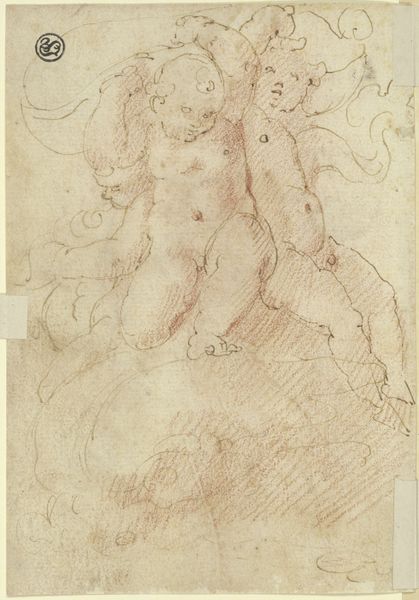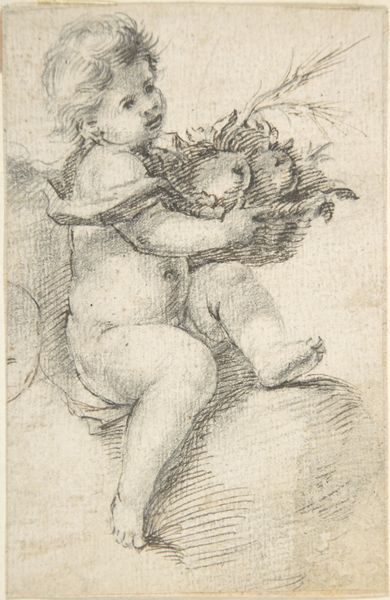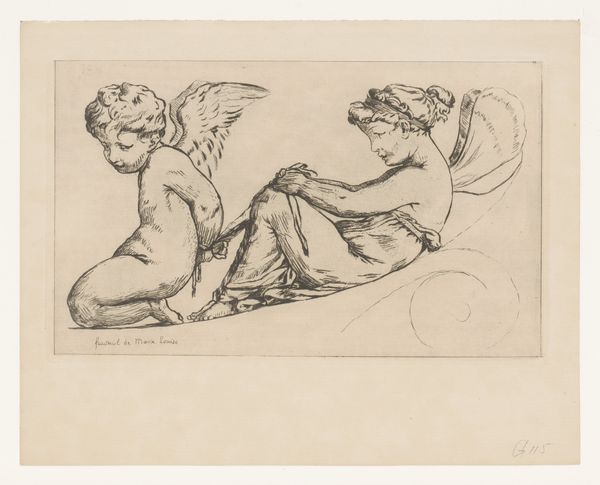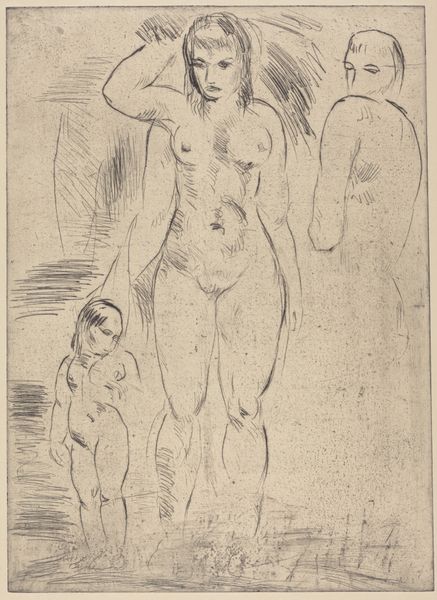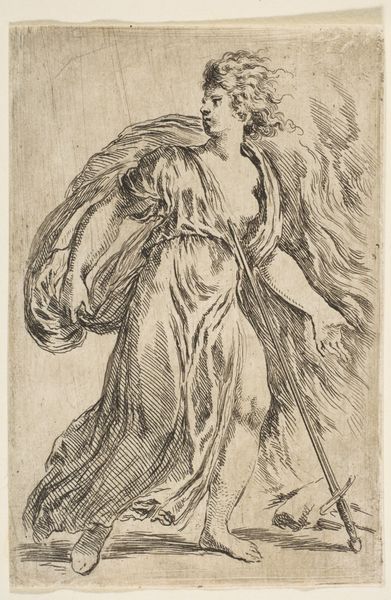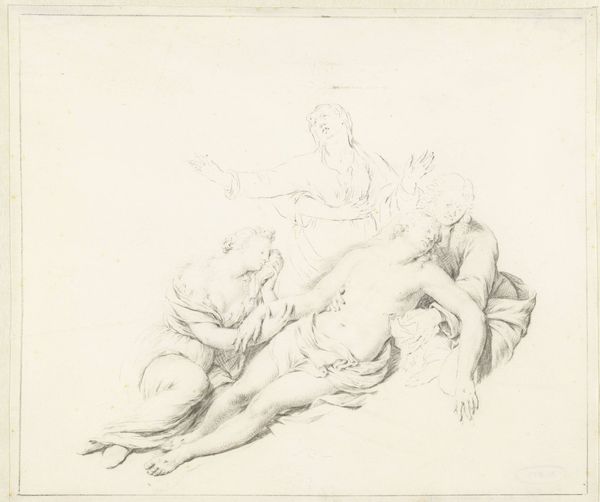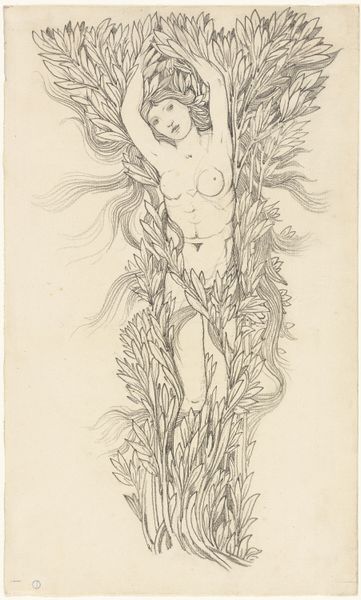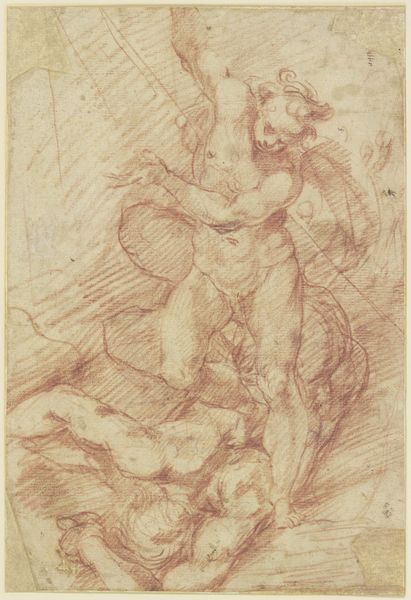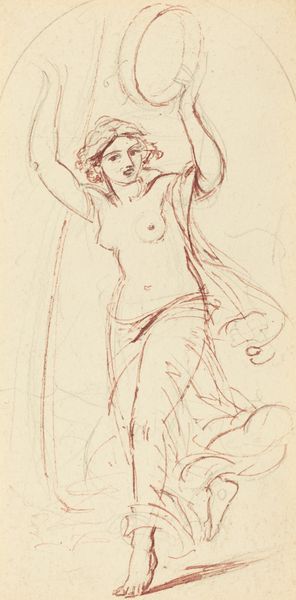
drawing, etching
#
drawing
#
ink drawing
#
allegory
#
baroque
#
pen sketch
#
etching
#
pencil sketch
#
figuration
#
line
#
nude
Dimensions: height 207 mm, width 146 mm
Copyright: Rijks Museum: Open Domain
Giuseppe Diamantini made this etching, Fortuin, sometime in the 17th century. Here, the female figure of Fortuna, the Roman goddess of luck and fate, sits precariously on a globe amidst swirling clouds. She is nude except for a loose drape, with her hair windswept and her right arm raised, almost as if she is beckoning fate. Prints like this one circulated widely in Europe. They were relatively inexpensive and fuelled an expanding art market. The goddess Fortuna embodies the capriciousness of life, but also speaks to a period of burgeoning global trade, where fortunes could be made or lost on a single voyage. The globe she sits upon hints at the widespread cultural and economic exchange of the era. Diamantini’s loose, sketchy style adds to the sense of instability, as if fortune could change in an instant. By studying historical texts and economic data from the period, we can understand the social conditions that shaped not only the creation of this artwork but also its reception. Art is never made in a vacuum; its meaning is always contingent on its social and institutional context.
Comments
No comments
Be the first to comment and join the conversation on the ultimate creative platform.
